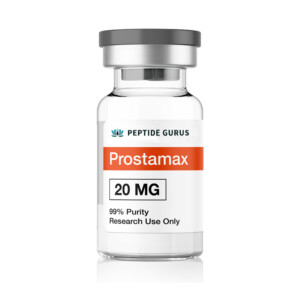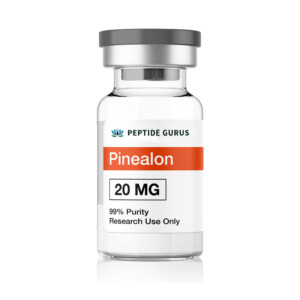Research peptides have become increasingly popular in the scientific community due to their potential applications in various fields, including medicine, biotechnology, and pharmacology. As a result, there is a growing demand for reliable and efficient shipping options for these sensitive materials. When it comes to shipping research peptides, several factors need to be considered, such as temperature control, packaging, and delivery speed. This article will explore the various shipping options available for research peptides, ensuring that they arrive at their destination in optimal condition.
One of the most critical aspects of shipping research peptides is temperature control. These peptides are often sensitive to temperature fluctuations, which can affect their stability and efficacy. To address this issue, many suppliers offer temperature-controlled shipping options. This typically involves the use of insulated packaging materials, such as Styrofoam containers, and cold packs or dry ice to maintain a consistent temperature throughout the shipping process. Some suppliers even offer refrigerated or frozen shipping options for peptides that require strict temperature control.
In addition to temperature control, proper packaging is essential for ensuring the safe delivery of research peptides. Packaging materials should be chosen based on the specific requirements of the peptides being shipped. For instance, peptides that are particularly sensitive to light may need to be packaged in opaque containers to prevent degradation. Additionally, it is crucial to use leak-proof and tamper-evident packaging to protect the peptides from contamination and ensure their integrity upon arrival.
Delivery speed is another important consideration when shipping research peptides. The faster the peptides are delivered, the less time they are exposed to potential environmental fluctuations that could compromise their stability. Many suppliers offer expedited shipping options, such as overnight or two-day delivery, to minimize the time the peptides spend in transit. This is particularly important for peptides that are highly sensitive to temperature changes or have a short shelf life.

International shipping of research peptides presents additional challenges, including customs regulations and potential delays. To navigate these challenges, it is essential to work with a reputable supplier who has experience in shipping peptides internationally. They should be familiar with the necessary documentation and regulations required for importing peptides into different countries. Additionally, they should have established relationships with reliable shipping carriers to ensure timely and secure delivery.
When choosing a shipping carrier for research peptides, it is crucial to consider their reputation and track record. Working with a carrier that has experience in handling sensitive materials can provide peace of mind and reduce the risk of issues during transit. Some of the most reputable carriers for shipping research peptides include FedEx, UPS, and DHL, all of which offer specialized services for temperature-sensitive shipments.
Another important aspect of shipping research peptides is tracking and monitoring. Many suppliers and carriers offer advanced tracking systems that allow customers to monitor the status of their shipment in real-time. This can be particularly useful for ensuring that the peptides are being transported under the appropriate conditions and for addressing any potential issues that may arise during transit.
Insurance is another consideration when shipping research peptides. Given the high value and sensitivity of these materials, it is advisable to invest in shipping insurance to protect against potential loss or damage. Many suppliers and carriers offer insurance options specifically tailored to the needs of researchers shipping peptides, providing an added layer of security and peace of mind.
In addition to the standard shipping options, some suppliers offer specialized services for shipping research peptides. For example, some companies provide custom packaging solutions designed to meet the unique requirements of specific peptides. Others offer consulting services to help researchers determine the best shipping methods and materials for their particular needs. These specialized services can be invaluable in ensuring the safe and efficient delivery of research peptides.
It is also essential to consider the cost of shipping research peptides. While it may be tempting to choose the cheapest shipping option, it is important to weigh the potential risks and benefits. Investing in reliable, temperature-controlled shipping and expedited delivery can help ensure the integrity of the peptides upon arrival, ultimately saving time and money in the long run by preventing the need for reordering or reshipping.

Communication with the supplier is key when shipping research peptides. Researchers should work closely with their suppliers to ensure that all necessary precautions are taken to protect the peptides during transit. This includes discussing the specific requirements of the peptides, such as temperature control and packaging, as well as any potential challenges that may arise during shipping.
For peptides that require long-term storage, it is important to consider the storage conditions at the destination. Researchers should ensure that their facilities are equipped to store the peptides at the appropriate temperature and conditions upon arrival. This may involve investing in specialized storage equipment, such as refrigerators or freezers, to maintain the stability and efficacy of the peptides over time.
Another factor to consider when shipping research peptides is the potential impact of environmental conditions during transit. For example, extreme weather conditions, such as heatwaves or cold snaps, can affect the temperature inside the shipping container. To mitigate these risks, researchers should work with their suppliers to develop contingency plans, such as using additional insulation or adjusting the shipping schedule to avoid extreme weather events.
Customs regulations and import restrictions can also pose challenges when shipping research peptides internationally. Different countries have varying requirements for importing biological materials, and it is essential to be aware of these regulations to avoid delays or issues at customs. Researchers should work closely with their suppliers and shipping carriers to ensure that all necessary documentation is in order and that the peptides are compliant with the import regulations of the destination country.
In some cases, it may be necessary to ship research peptides in bulk to reduce shipping costs and minimize the risk of damage during transit. Bulk shipping can be a cost-effective option for researchers who require large quantities of peptides for their experiments. However, it is important to ensure that the peptides are properly packaged and labeled to prevent confusion and ensure their safe delivery.
Researchers should also consider the potential impact of shipping delays on their experiments. Delays can occur for various reasons, including customs inspections, weather conditions, or carrier issues. To minimize the impact of delays, researchers should plan ahead and allow for extra time in their project timelines. Additionally, working with a reputable supplier and carrier can help reduce the likelihood of delays and ensure timely delivery.
When shipping research peptides, it is important to keep detailed records of the shipping process. This includes tracking information, temperature monitoring data, and any communication with the supplier or carrier. Maintaining thorough records can help researchers identify and address any issues that may arise during transit and provide valuable documentation in the event of a dispute or insurance claim.
Another consideration when shipping research peptides is the potential for contamination. Peptides can be vulnerable to contamination from various sources, including other biological materials, chemicals, or environmental factors. To minimize the risk of contamination, it is essential to use sterile packaging materials and follow strict handling protocols throughout the shipping process.
In some cases, researchers may need to ship research peptides to multiple locations, such as collaborating laboratories or clinical trial sites. Coordinating the shipping process for multiple destinations can be challenging, but it is essential to ensure that all locations receive the peptides in optimal condition. Researchers should work closely with their suppliers and carriers to develop a coordinated shipping plan and ensure that all necessary precautions are taken for each destination.
Finally, it is important to stay informed about the latest developments in shipping technology and best practices for research peptides. Advances in packaging materials, temperature monitoring systems, and shipping methods can help improve the safety and efficiency of peptide shipping. Researchers should stay up-to-date with industry trends and continuously evaluate their shipping processes to ensure that they are using the most effective and reliable methods available.
In conclusion, shipping research peptides requires careful consideration of various factors, including temperature control, packaging, delivery speed, and regulatory compliance. By working with reputable suppliers and carriers, investing in reliable shipping methods, and maintaining open communication, researchers can ensure the safe and efficient delivery of their valuable peptides. Staying informed about the latest advancements in shipping technology and best practices can further enhance the success of peptide shipping and contribute to the overall success of research projects.
All products on this site are for Research, Development use only. Products are Not for Human consumption of any kind.
The statements made within this website have not been evaluated by the US Food and Drug Administration or HEALTH CANADA. The statements and the products of this company are not intended to diagnose, treat, cure or prevent any disease.
PeptideGurus is a chemical supplier. PeptideGurus is not a compounding pharmacy or chemical compounding facility as defined under 503A of the Federal Food, Drug, and Cosmetic act. Peptide Sciences is not an outsourcing facility as defined under 503B of the Federal Food, Drug, and Cosmetic act.
PeptideGurus is a leading supplier of American-made research peptides, offering top-quality products at competitive prices. With a focus on excellence and customer service, they ensure a secure and convenient ordering process with global shipping.
CONTACT